#learning Chinese
Explore tagged Tumblr posts
Text
Studying Chinese, but we just moved out in the country, and I have no one to practice with. I may have to use one of the online teachers when we get our internet set up.

10 notes
·
View notes
Text
(Languages taken from the top 10 foreign languages learned on Duolingo in 2024.)
I would like to bring your attention to two fundraisers that are near and dear to my heart.
@elhamhamdan-gaza is a young woman trying to survive in Gaza with her family. She was a top student at university until October 2023, when she and her family were displaced from their home in Khan Younis and forced to flee to Rafah. After the invasion in Rafah, they returned to their home in Khan Younis only to find it burned. They had no choice but to live in it. Elham and her family desperately need funds for blankets and clothes, because winter is here and nights in Gaza are very cold right now.
Elham's campaign is very low on funds! So far they have only been able to raise £594 and they desperately need more support. Please donate to them if you are able, and share this post and campaign with as many people as you can.
This campaign was verified by the Butterfly Effect Project (instagram) and is number 1180 on their spreadsheet, which you can access through the link on their instagram profile.
You can contribute to Elham's campaign by clicking on the link below:
Secondly, @drdarine is a young woman who is a medical student in Gaza. Despite being displaced and suffering hardships we can only imagine, Darine is continuing her studies and helping out others in the refugee camps and shelters in southern Gaza. Her family consists of seven people, one of them being my friend @dawoudi who is selflessly and unfailingly helping many other families in Gaza by verifying their fundraisers and promoting them on Tumblr. Everyday I see more campaigns added that he has verified, providing an important service to the many families in Gaza that need our help.
Darine's family has been fundraising since February, which is almost ten months! Despite that, they have only been able to raise $5,765, 19% of their goal. Progress on their campaign is extremely slow, often needing to wait multiple days for another donation to come in. We can do better than that.
This campaign was vetted by @gazavetters, and is number 15 on their spreadsheet, which you can find in the pinned post on their profile.
You can contribute to Darine's campaign by clicking on the link below:
Please support these fundraisers! Thank you!
Tagging for reach, let me know if you want me not to tag you in the future
@commissions4aid-international @funds4gaza @a-shade-of-blue @dlxxv-vetted-donations @kyra45-helping-others
@northgazaupdates2 @bilal-salah0 @imjustheretotrytohelp @devilofthepit @ankle-beez
@lukewarm-lesbian @wellwaterhysteria @appsa @qattdraws @laughteronsilverwings
@felixander-official @nabulsi @mukkie @oursapphirestars @fruitwoodmac
@comrademango @sunflowersmoths @mindchalice @battleteacake @girlinafairytale
#languages#duolingo#learning languages#learning english#learning french#learning german#learning spanish#learning Japanese#learning korean#learning italian#learning Chinese#english#spanish#french#german#japanese#korean#italian#chinese#fundraising#mutual aid#gfm#vetted fundraisers#vetted by butterflyeffect.project (instagram)#no 1180 on their spreadsheet#vetted by gazavetters#no 15 on their spreadsheet#this campaign is very low on funds!
582 notes
·
View notes
Text

87 notes
·
View notes
Text
牙刷 (yáshuā) - toothbrush
刷牙 (shuāyá) - to brush the teeth
Chinese is so intuitive
#langblr#language learning#chinese langblog#langblog#languages#love languages#chinese langblr#chinese language#learning languages#learning chinese#studyblr#Chinese
16 notes
·
View notes
Text

Sometimes it makes me wanna cry… or die
64 notes
·
View notes
Text

GUYS THIS HAS BEEN THE BEST WEEK OF MY LIFE I SWEAR. I THOUGHT THEY WOULDNT LET ME KNOW FOR A WHIIILE OMGOMG IM GOING TO TAIWAN
#studyblr#study blog#langblr#langblog#language learning#languageblr#chinese langblr#mandarin langblr#study abroad#taiwan#chinese language#mandarin chinese#mandarin studyblr#studyblr community#chinese studyblr#learning chinese#learn chinese#mandarin study#learn mandarin#studyabroad#exchange student#student life#uniblr#university#college
124 notes
·
View notes
Text
小王子 The Little Prince ✎ 生詞 002

著: 安東尼・聖修伯里 / 譯: 墨丸 生詞 002 (第一章 Chapter 01)
描繪 (描绘) miáo huì — describe, depict, portray
長達 (长达) cháng dá — up to, to extend as long as
睡眠 (睡眠) shuì mián — sleep
歷險 (历险) lì xiǎn — go through adventures, experience dangers
叢林 (丛林) cóng lín — jungle, forest
冒險 (冒险) mào xiǎn — take risks or chances
幻想 (幻想) huàn xiǎng — illusion, fantasy
生平 (生平) shēng píng — all one's life, ever since one's birth
傑作 (杰作) jié zuò — masterpiece
巨蟒 (巨蟒) jù mǎng — python
吃飽喝足 chī bǎo hē zú —eat and drink one's fill
無所謂 wú suǒ wèi — indifferent, doesn't matter
#小王子#the little prince#langblr#studyblr#chinese langblr#mandarin langblr#chinese#mandarin chinese#learning languages#budinggou#learning chinese#chinese vocabulary#chinese vocab#mandarin vocab#study chinese#taiwanese#traditional mandarin
56 notes
·
View notes
Text
I procrastinated yesterday and wrote a story about the never ending intermediate plateau of language learning in chinese instead
here you go. it's got a god in it!
please don't correct anything lol. this was a learning experience and I am absolutely certain there are many things wrong with it. in fact there better be.
feat. excessive misremembering of guzhuangju vocabulary
中级草原
你睁开眼睛,猛然醒过来。这是哪儿呢?
四野都是慢慢的草原。寒风吹动草叶,冷得叫你快要冻僵了。你转身往后看,但又是一望无际的草原,远方环绕着碧绿的群山,山顶笼罩在薄雾之中。你恐慌地喊道,’有人吗?‘
你的声音在广阔的草原中回荡,唯一的回声。四周是一片死般的寂静。你皱了眉,想了想。
你到底在哪儿?发生了什么?又怎么能回家?
你好像一个人在草原中,没有半点人生的痕迹。你拖着脚往前走,四肢发抖。这到底是什么养的噩梦?
不久后,你的脚突然碰到了地上的什么东西,把你差点儿摔了一脚。你蹲下把东西捡起来,看它一眼。是 - 是 -
是一本书?!
你下意识地闭上了双眼。你的心跳渐渐下降。你心里想:这地方真是太吓人了吧! 只不过是一本书而已,凭什么把我吓成这样?
但不管怎么说服自己,你还是不能完全放松警惕。这整个地方处处都有异常,那本书肯定也是。万一有人对它下了咒?你的心跳在耳朵里回荡。你想了片刻,又想不起来别的办法试探它,终于鼓起了勇气,打开眼睛又看它一眼。
这次才发现,书上果然有字!
你双手发汗,伸手把书上的草叶擦一擦。
书上写���:’此处乃是中级草原,文神之地!中级学者以‘高级学者’之名装做语言高手,天下大罪!罪人一律处罚,毫无例外!’
啊?文神?你没看错吧?反正你的中文没那么好,有可能是你的阅读水平不够好。但书上明明写着 ’文神‘ 二字。
唉。你原本只是想睡一场午觉,怎么闹到这种地步?!文神。原来仙侠剧讲的都是实话,还真有此事!但中级草原又是什么?
你把书翻到第一页。乍看起来什么都没有,又看了一眼,黑黝黝的字突然出现了!
你结结巴巴地把第一行读出来 -
’文神不容辩解!自称高级学者,态度傲慢,行为无礼,惩罚如下:万年深刻反省,不许归回人间!文神待人宽大,从轻处罚,请罪人鞠躬谢恩!‘
又是中级草原!自称高级学生?谁是自称高级学生?你骄傲的想:可我明明已经是高级学生了,怎么会有如此丢脸的下场。。。!而且这哪里算是待人宽大,从轻处罚呢?还有最后一句 - 把她困在这里,人家还要你鞠躬致谢!
你心里想:这个文神说我态度傲慢?我看他才是!
你回头看一眼,依旧是茫茫的草原。你叹了口气。不知道为什么,但你突然不害怕。到了这个地步,害怕又有什么用?
也不是你第一天遇到难处。学中文的路程中哪天没有困难?
你的脸上露出一丝深沉的微笑。你心里想:每个难关是可以渡过的,而且你已经会写繁体字了。这世界上还有更可怕的事请吗?
你抬头看了天空,低声道,‘好吧。是!我承认:我是说自己是高级学生了,我是觉得自己很厉害了!我都承认!但你知道什么吗?学到今天都不容易!我为了中文把所有给我人生意义的爱好都放弃了,跟我的吉他分手了,甚至抛弃了我亲爱的电视!你还要我自卑吗?我不会!我为自己做出的一切感觉非常的骄傲!你说我是中级学生,高级学生,我都无所谓!你说的这些等级只不过是人造的分别!你看!大自然有山,有人,有树,有水!那天下还有高级的水吗?中级的树?你告诉我,这样说有道理吗?’
你的眼睛闪着愤怒的光芒,继续道:‘我不会放弃的。我的中文会好的,我对自己有信心。无论你怎么测试我,我都会接受!每一个挑战,我都会站起来迎接!这是我的诺言。你说文神待人宽大吗?要不这样:你给我一年的学习时间。一年后你下来测试我,我不会阻拦你的。如果我让你失望,那就依你处理吧!我发誓,我会接受处罚的,绝不会逃走。‘
你嗓音清亮道:’但是我若是表现得好 - 你得放过我才是。如果这次的诺言你不想遵守,我会向所有的仙人喊冤!天上的各个神仙,地下的各个妖魔鬼怪,都会知道你做事不正当,行为不轨呀!听到了吗?你这么强大的神仙欺负我,一个没信徒没法力的凡人,你怎么给他们一个交代?天庭哪儿会容得下这种品行呢?你总得给我一个机会改错吧?这样才算是宽大待人。文神大人,您看如何?‘
乌云遮天,电闪雷鸣。你闭上了双眼,不由地 ’啊!‘了一声,睁开眼睛后就看见 - 就看见 -
有一个男人站在你面前。此人穿着白衣,长发漆黑,面容慈和,姿态优美。他左手拿着一把扇子,右手不停地把玩碧绿的玉佩,具有学者风度。
你震惊地跪下去,深深地鞠了一个躬。‘文神大人!‘
你心里想: 完了完了,还真有此人,我死定了!
有一个温和的声音道:’好了好了,别喊了。免礼平身!‘
你谨慎地站了起来,惊奇地看着他。你心里想:啊,我刚才为什么要惹他生气。。。!
他微微一笑,双眼闪着深不可测的光芒。
你终于咳嗽一声。‘大人,这是。。? ‘
白衣文神轻轻地笑了一声。’还能是什么?你的请求,我准了。’ 他的声音斯文,双眼却炯炯发光,让你浑身冰凉。‘其实你根本没必要这样威胁我。像你这样口才好的凡人真是难得!你的中文也不错,但关键是确实还没达到高级水平啦。你可知罪?’
你低声道:‘小人知���。‘
他又笑了一声。‘嗯,不错,敬语也学会了!那我们随你办事吧。我想给你这次机会。一年之后,我会回来找你,看看你有没有你说的本事。如果你真让我失望,我可饶不了你哦。‘
他嘴角上挂着会心的微笑。
过了半响,你嗓音颤抖地道:‘那 - 那我现在怎么办?’
他眨一下眼,道:’好好读书!‘
文神把清白的扇子��了两次,潇洒地挥手,一道闪电划过了天空。你震惊地用手保护眼睛,睁开双眼 -
你一抬头,他就消失了。
你松了口气。草原依旧是一望无际的绿海,天空又回到了蓝色。只有一点不同:地上又有一本书。你蹲下把它捡了起来,发现这这本比另一本大。书名叫:‘现代汉语大词典。‘
你无奈地笑了一声。除了微风吹动草叶以外,草原是静止的。你把书打开,从第一词条开始学习,心里想:的教训我接受了,我再也不会说自己是高级学生了。但我回凡间之后,一定能把HSK6级考得好!
----
(also for legal reasons the bit about traditional chinese was a joke. I'm just still completely illiterate by hand in chinese so. it remains my greatest demon)
#chinese#chinese langblr#learning chinese#langblr#mandarin#hoohoooo heeheheeee#it IS just under 2000 words though which I think is the longest thing I've ever written in chinese? so#that's something#if you're thinking 'why is it written so annoyingly'#well I can't write actually well so I have to be deliberately stylistically stupid. hope this makes sense!
33 notes
·
View notes
Text
Speak DECENT CHINESE in 4 months - 8 easy tips
______
1. Have someone to guide you to get good pronunciation habits. It is almost impossible to re-learn bad habits later so make sure you get your pronunciation right from the beginning. I mean the pronunciation of the sounds, not the tones. Tones take more time to get used to and you can't rush it - but try the best you can. Some tutors don't bother too much about the pronunciation so make sure you find someone who is strict about that, you will be grateful later. Also get confident in pinyin, you will need it.
2. Understand the composition of the sentences. The word order is super easy and it stays the same all the time (the question and informative sentences have the same word order). I have a formula for the word order but I won't reveal it here, it is one of the secrets I keep for my students and people who use my materials.
3. Understand that there are no tenses in the sense we think about them in English and other languages. Learn to express future, potential future, finished action, change of state, experience in the past and circumstances of the event. See the difference between action verbs and verbs of state.
4. Learn to use modal verbs and conjuctions.
5. Build usable vocabulary based on the fact that everything in Chinese is interconnected.
6. Understand 就, 才,的 and 得
7. Don't learn grammar rules and words separately. Learn functional practical sentences that will serve you as examples of the grammar structures (then you just need to change the words in these sentences).
8. Develop your listening skills - that is very important. For that there are Youtube channels and podcasts on Spotify (and in my materials the audio part also plays an important role). You can listen to Chinese radio stations just to get the feeling of the language.
______
After 3-4 months you should feel pretty confident in normal conversations if you study regularly under competent guidance.
______
R-evolutionary learning materials and resources: https://chineseffect.com
MAGIC PLAYBOOK for beginners
#learn chinese#learn mandarin#chinese langblr#mandarin langblr#edublr#mandarin#chinese#mandarin edublr#langblr#chinese vocabulary#mandarin chinese#chinese edublr#learning mandarin#learning chinese#study chinese#mandarin vocabulary#study mandarin#汉语#chinese studyblr#beginners chinese#chinese for beginners#learning tips#chinese tips#mandarin tips
336 notes
·
View notes
Text
watching Americans infiltrate xhs when I've been wanting to use it as immersion for learning chinese

(idrc obviously but as long as it isn't clogged up with eng content I'm good)
41 notes
·
View notes
Text
Y'all I've been learning Mandarin for a few months now, and it was time for our teacher to give us Chinese names. The name she chose for me is 林晨 (lín chén). Now, that's a beautiful name, by both sound and meaning, and it fits me nicely, I'd say. But it has certain... Yikes implications when translated into English 😬
林 (last name) - forest, wood, jungle
晨 (first name) - morning, dawn
... Y'all, she literally named me morning wood 😭
It doesn't hold any dirty meaning in Mandarin, and my teacher's English isn't the best, so I'm sure this wasn't on purpose, but I find it hilarious regardless. It grew on me, I honestly love it, so I don't think I'll say anything about its implications to my teacher. Just thought I should share because it made me giggle like a twelve year old 😂
21 notes
·
View notes
Text



Updates on Learning Mandarin Chinese 6/∞: 课本和可理解输入
Currently working my way through NPCR4 (just started the second chapter!) and balancing it off with some comprehensible input videos in Chinese.
I'm loving the fact that comprehensible input has become The Thing in language learning circles in the past couple of years, because it's caused a veritable explosion of comprehensible input videos on Youtube. I recently found out about Lazy Chinese - Comprehensible Input, and I'm really enjoying her videos!
youtube
🎵 曹格 Gary Chaw 【一 One】
#mandarin langblr#langblr#chinese langblr#learning mandarin#learning chinese#zhongwen#updates on learning mandarin
35 notes
·
View notes
Text

These are the apps and links I currently have on my phone to study Chinese:
SuperChinese: my main study resource. There are currently 7 levels, level 7 (still incomplete, they are still slowly adding lessons to it) being HSK 5 stuff. Each lesson has vocabulary, grammar and a short dialogue where those are used in context (I love context). It has a few free lessons in the lower levels but after that you have to buy a subscription. There are many sales though. When I was a beginner I used HelloChinese instead, which has more free content, and switched to SuperChinese when I finished all the free content there. It also has social network features and chat rooms I don't use.
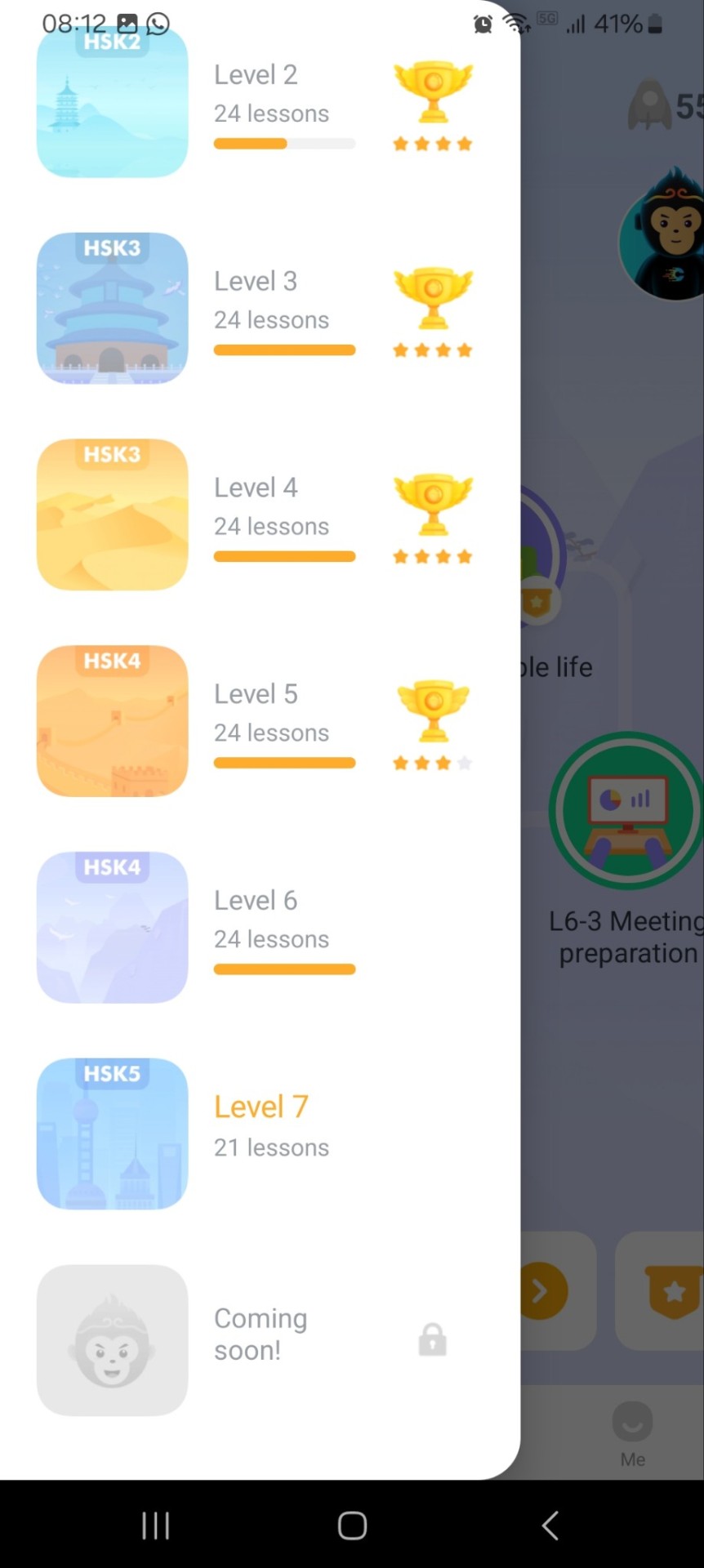
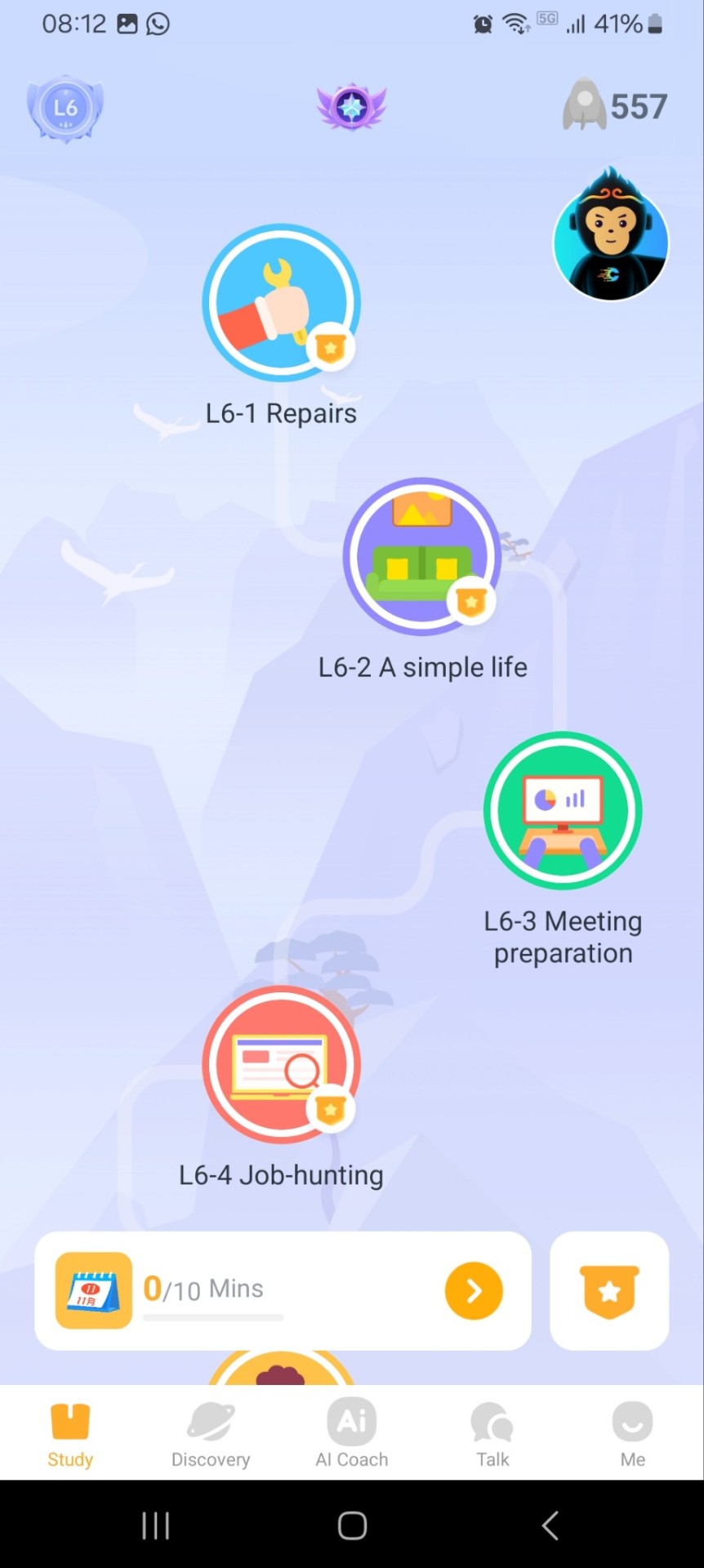
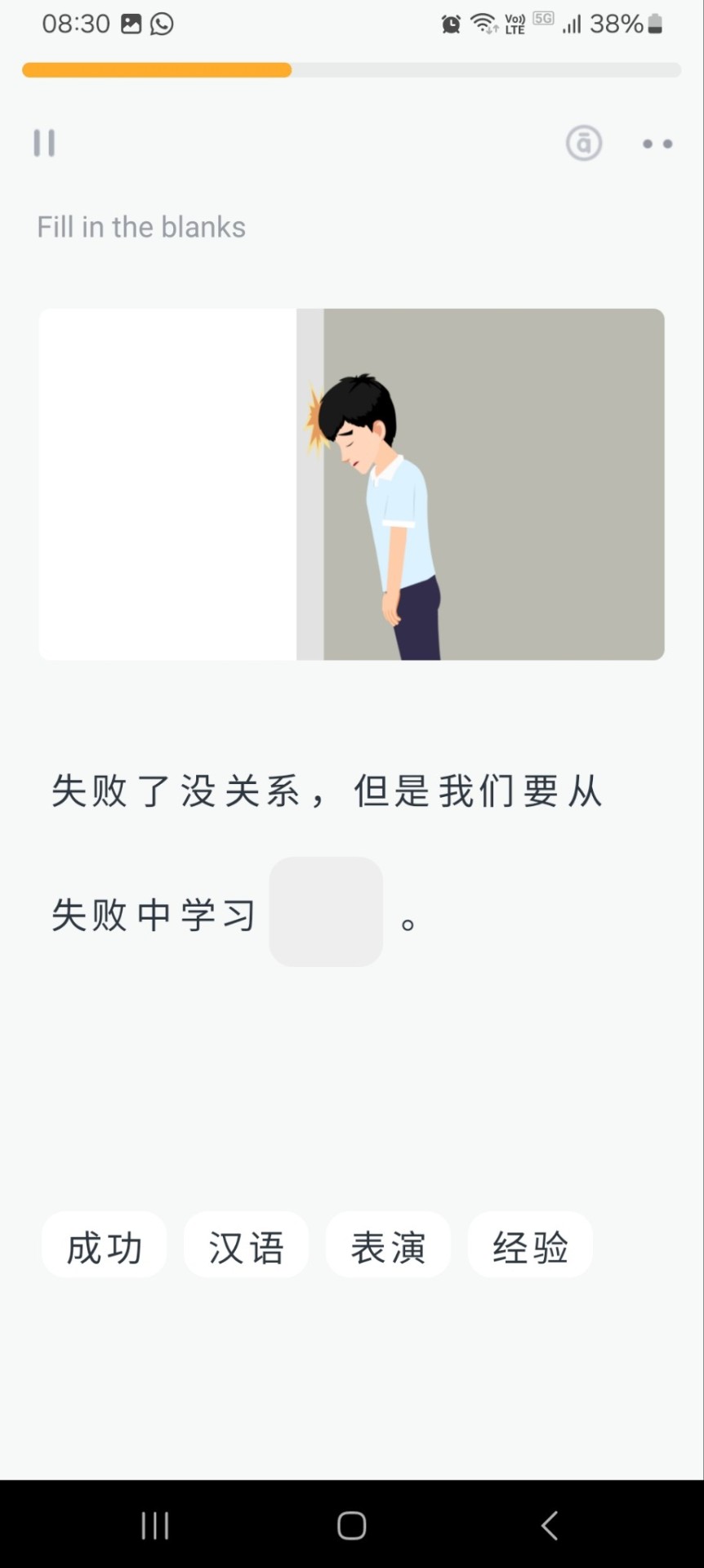

TofuLearn is like a flashcard app with many pre-made decks (you can also create your own on their website and import decks from Anki) and the option to practice writing hanzi. Anki didn't work for me, but I find Tofu very helpful. Practicing writing helps me with character recognition, and it also helps me remember the tones thanks to the audio in the pre-made HSK decks.
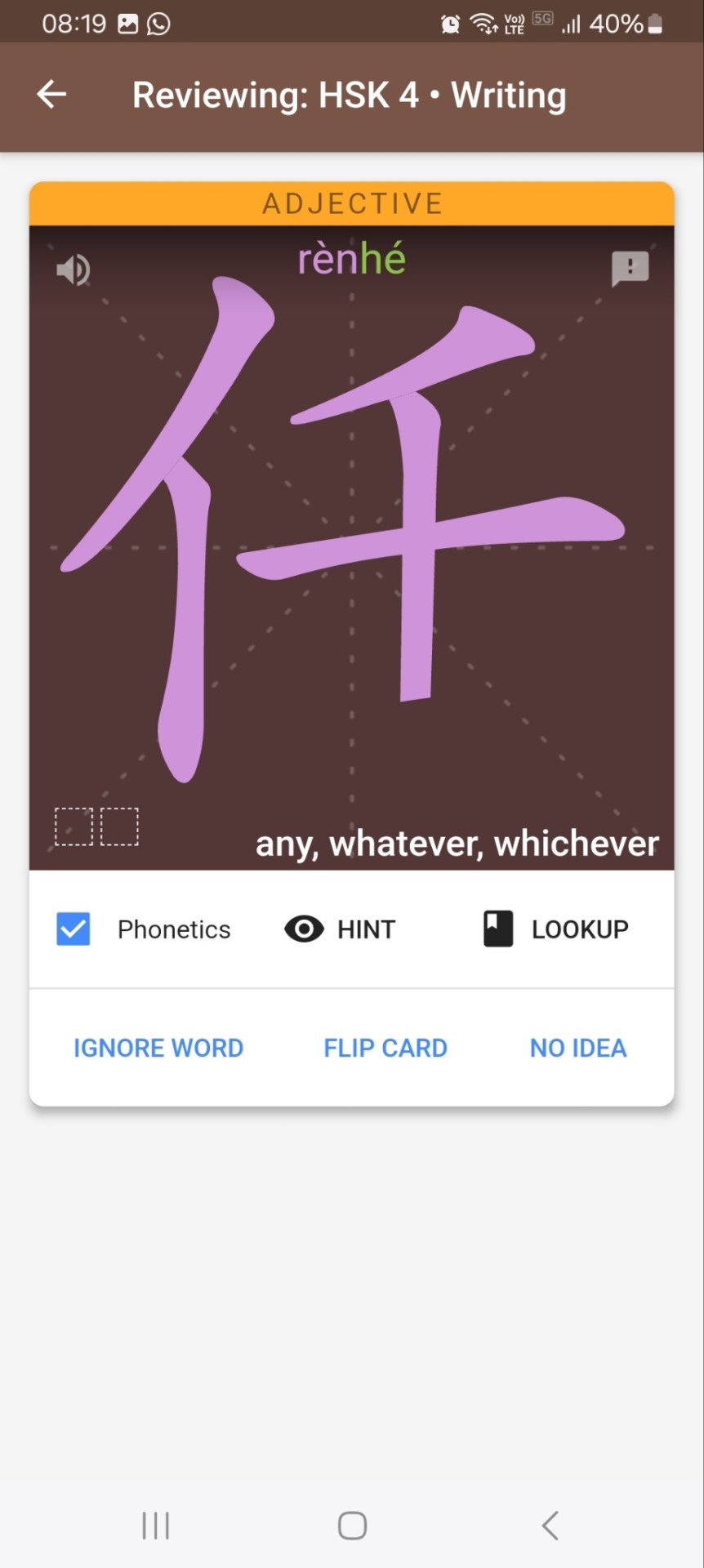
Dot is a reading app with new texts being added every day. It used to be completely free, which actually seemed too good to be true, and then they put practically everything behind a paywall and very strict limits for free users. After a couple of months they made it a little less restricted though - we still can't choose the articles but we can read as many as we want as long as we do the vocabulary exercises after each article (plus, during the Spring Festival, they made all articles available for free for 3 days and we could save the ones we were interested in to read later). It follows the new, not-yet-implemented (and harder) HSK levels, so you should start one or two levels below yours and if the texts are too easy move up.
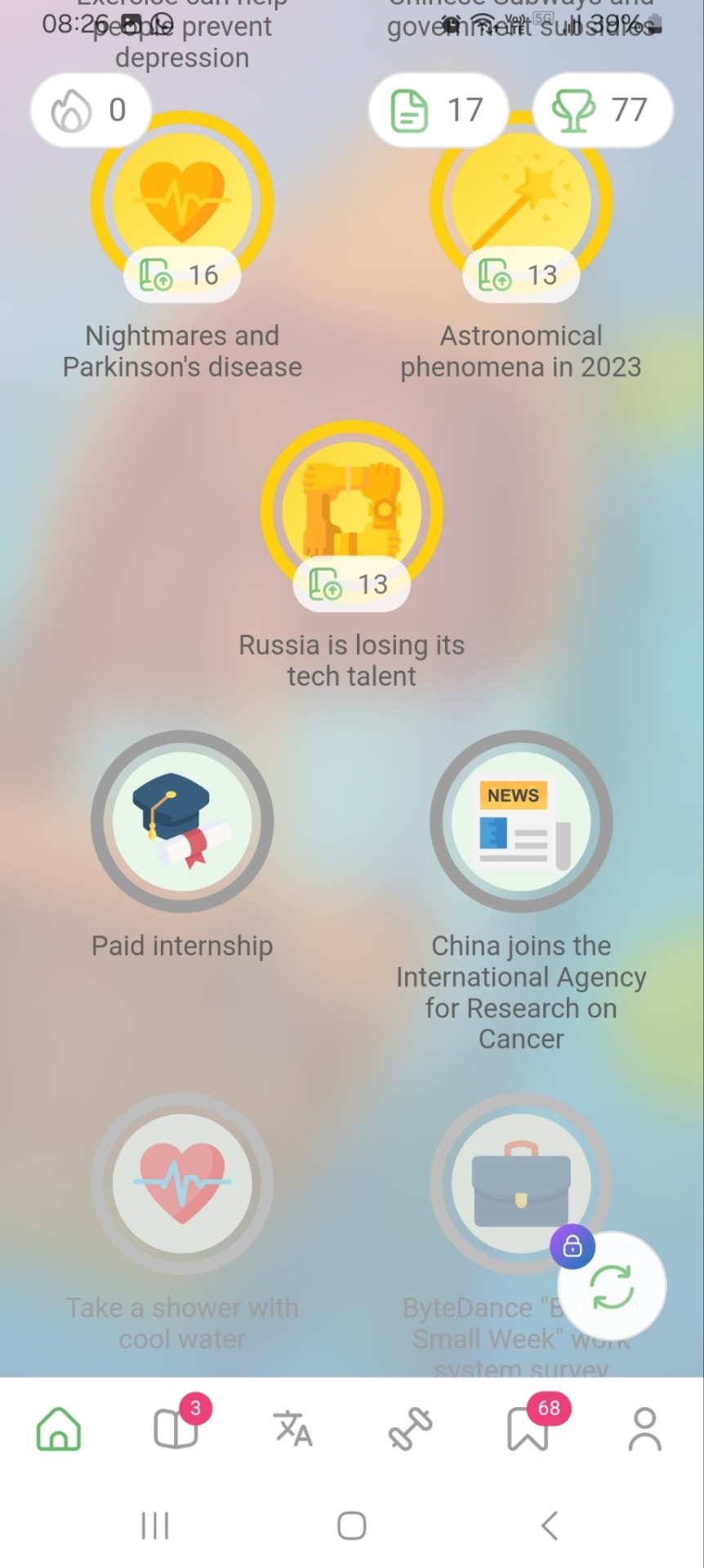
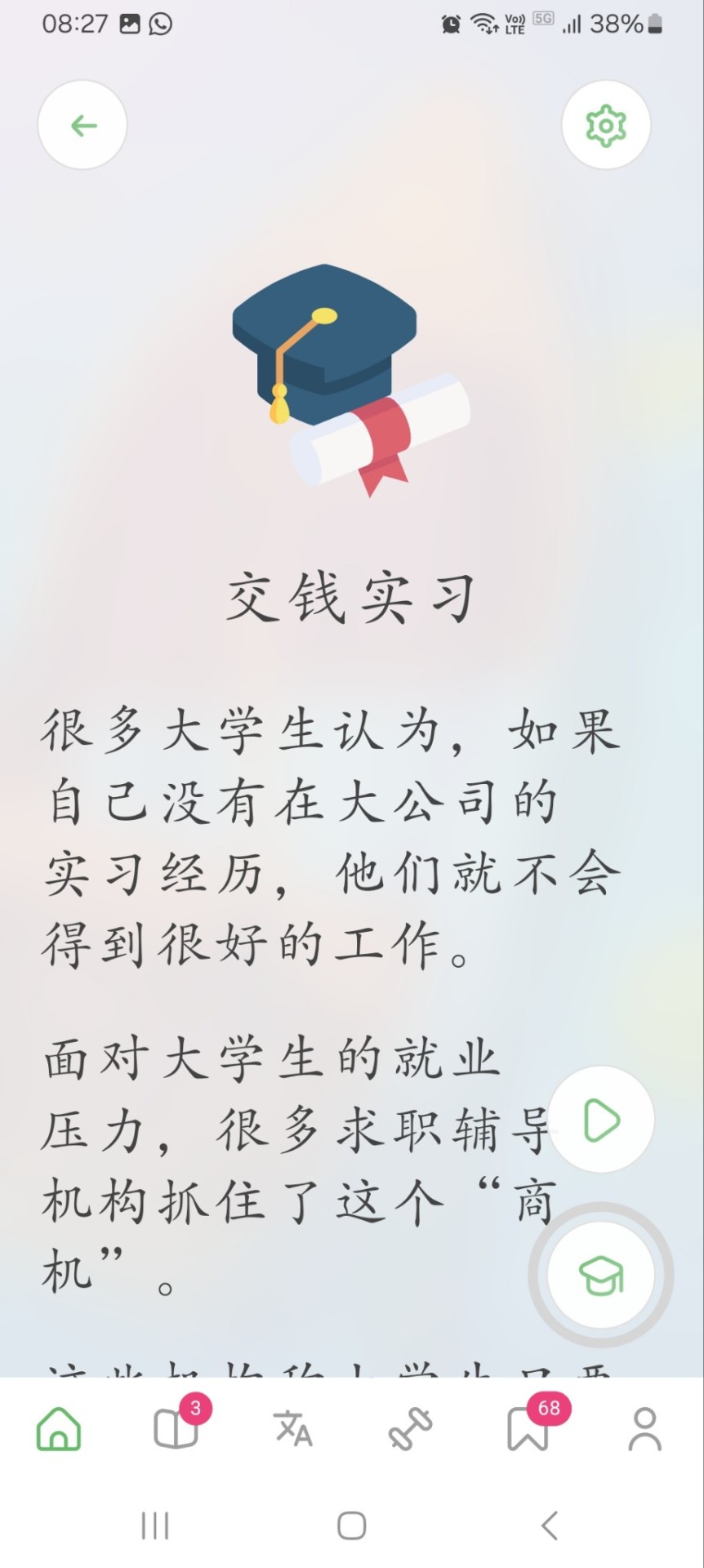
Google Translator: not the best but helpful when I need to translate whole sentences, plus I can point my camera or open an image and it translates writing.
Pleco: best Chinese to English dictionary.
Stroke Order: not an app but a website, does what it says in the tin: shows stroke order for a specific character.
YouGlish: also a website, you can put a word or phrase and it shows videos where people say that word/phrase. Very cool.
Todaii is a graded news app that has only two levels: easy and hard. I'm around level HSK4 and the "easy" level is quite hard though (but I admit reading is my nemesis).
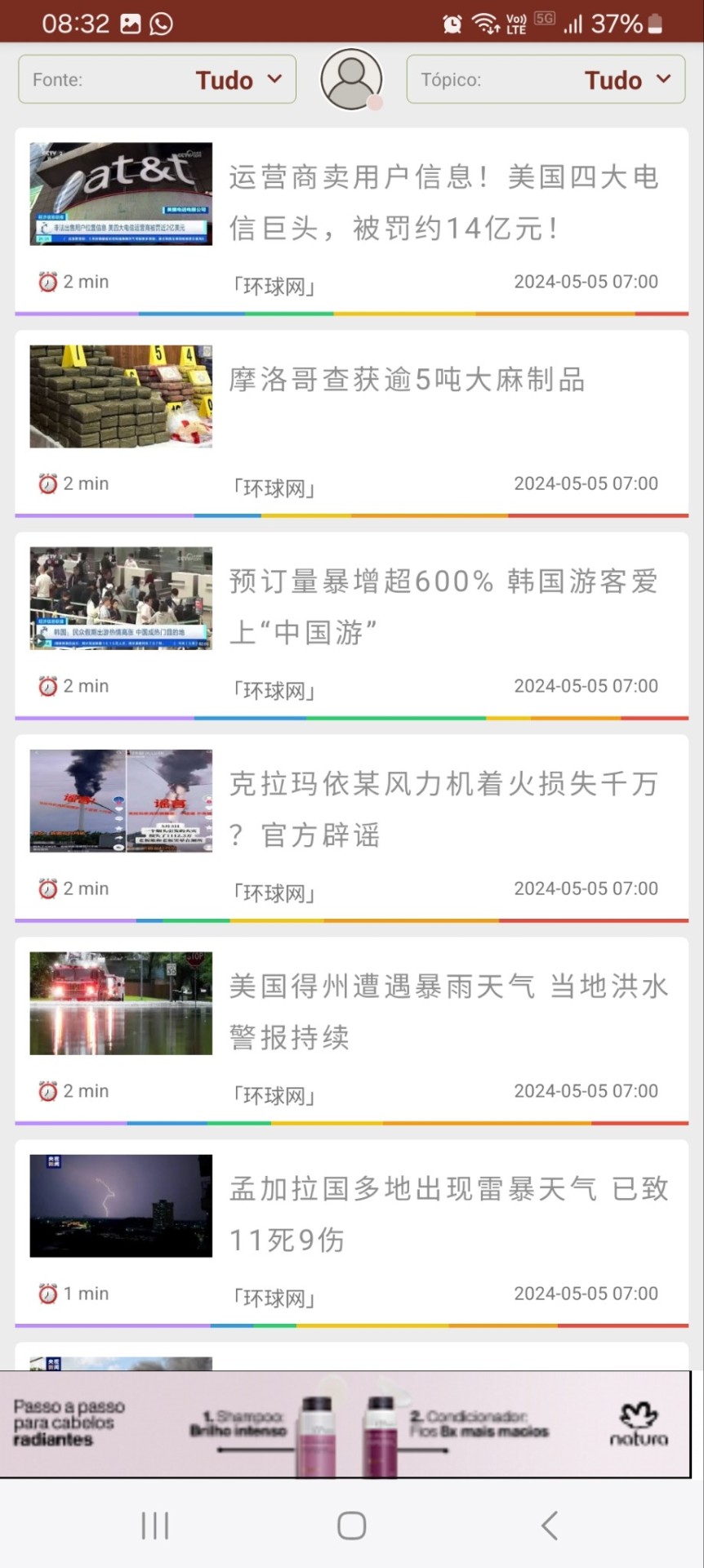
I also use YouTube and Spotify a lot.
#personal#resources#langblr#language learning#learning chinese#chinese langblr#chinese language#mandarin#中文
540 notes
·
View notes
Text

yesterday Chinese class before 老师’s power outage and 我的 internet issues
#we started the HSK 4 textbook#I really don’t like HSK books#languages#langblr#languages study#learning languages#studyblr#langblog#chinese langblr#learning chinese#language learning#Chinese
70 notes
·
View notes
Text
in like svsss fanfictions when characters refer to themselves as 'this one' what exactly are they saying? Like the hanzi, the pinyin, etc.
#chinese language#learning chinese#learning languages#languages#learning mandarin#foreign languages#Chinese#mandarin#mandarin langblr#hanzi#pinyin#help#svsss#svsss fandom#svsss fanfiction#moshang#luo binghe#shen qingqiu#shen jiu#scum villian self saving system#scum villain
95 notes
·
View notes